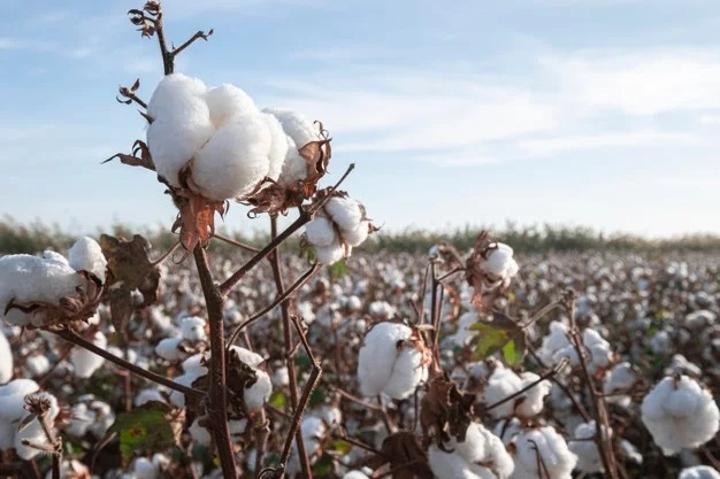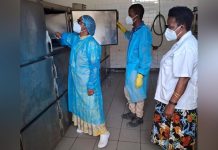Africa-Press – Mozambique. Mozambique’s government is going to subsidise the purchase of cotton by five meticais (€0.07 per kilogram for the current season, stabilising prices and benefiting 600,000 farmers, as well as encouraging a “culture of trust”, said the minister of agriculture.
“This price stabilisation and this subsidy that we are approving will affect around 100,000 families. We’re talking about a universe of 600,000 people who will have their income stabilised,” said Mozambique’s Minister of Agriculture and Rural Development, Celso Correia.
The announcement was made during a meeting with representatives of the National Forum of Cotton Producers (FONPA) and the Cotton Association of Mozambique (AAM) as part of the platform that, in recent years, has been negotiating proposals for the minimum price for seed cotton and the ginning fee, based on the approved calculation mechanism.
For the 2023/24 marketing year, a minimum price of 30 meticais (€0.43) per kilogram was set for the sale of cotton, including the subsidy to be paid by the government, compared to 33 meticais (€0.47 per kilogram and a subsidy of seven meticais (€0.10) in the previous marketing year.
The lack of rain in some regions of the country due to the ‘el niño’ phenomenon, the continued abandonment of production in Cabo Delgado province, one of the country’s biggest producers, and above all, the excess production on the market have affected the price and led to a subsidy being set for the second year running to maintain producers’ income.
“There is global pressure from countries where there are subsidies, which is pushing the price of cotton down. A lot of cotton is being produced, and stocks are rising,” explained Minister Celso Correia, acknowledging that the subsidy that the government will formally approve next week is also the result of the level of organisation in the sector.
The minister said it was necessary to “design a subsidy policy in a structured and organised way” so that it can “touch thousands of Mozambicans and move the national economy.”
“Today, the cotton sector already has the credibility to enter the biofuel production sector, in addition to fibre (…) This source credibility exercise, and others, require us to explore this opportunity, which will only do the country good, which is to truly create a deeper subsidy policy for this sector,” he said.
According to the data presented at today’s meeting, Mozambique accounts for less than 0.5% of world cotton production, in a market led by countries like the United States, China and India. In the 2021/22 campaign, 19,415 tonnes of seed cotton were marketed, with a total state subsidy of 105.5 million meticais (€1.5 million), and in the following campaign 37,400 tonnes, with state subsidies of 261.6 million meticais (€3.8 million).
The Management Group for the Seed Cotton Price Mechanism in Mozambique is the result of an initiative launched by the producers and the government in 2019, which was operationalised in the following years.
Francisco Ferreira dos Santos, president of AAM, emphasised that it is a “completely transparent mechanism” and “rare worldwide”, using the calculation of the minimum purchase price based on international exchanges, in which exporting companies share profits with producers (% of the total).
A “sophisticated and simple” mechanism, still “adapted to the reality of Mozambique”, which two years ago made it possible to “save” without subsidising.
“The five meticais [for the current campaign] is meaningful to the producer, has an impact on income and we achieved this with the support of the government, very much in line with what other countries do (…) Around 60 to 70% of the world’s cotton is subsidised and so there is an excess of production,” recalled the AAM leader, speaking to Lusa.
Cotton in Mozambique has resulted, explained Francisco Ferreira dos Santos, in an annual average of $30 to $50 million in exports over the last ten years, and is considered an essential crop: “It has a huge value chain (…) it’s an almost sacred crop, with catalysing effects on the economy and demographics.”
For More News And Analysis About Mozambique Follow Africa-Press






